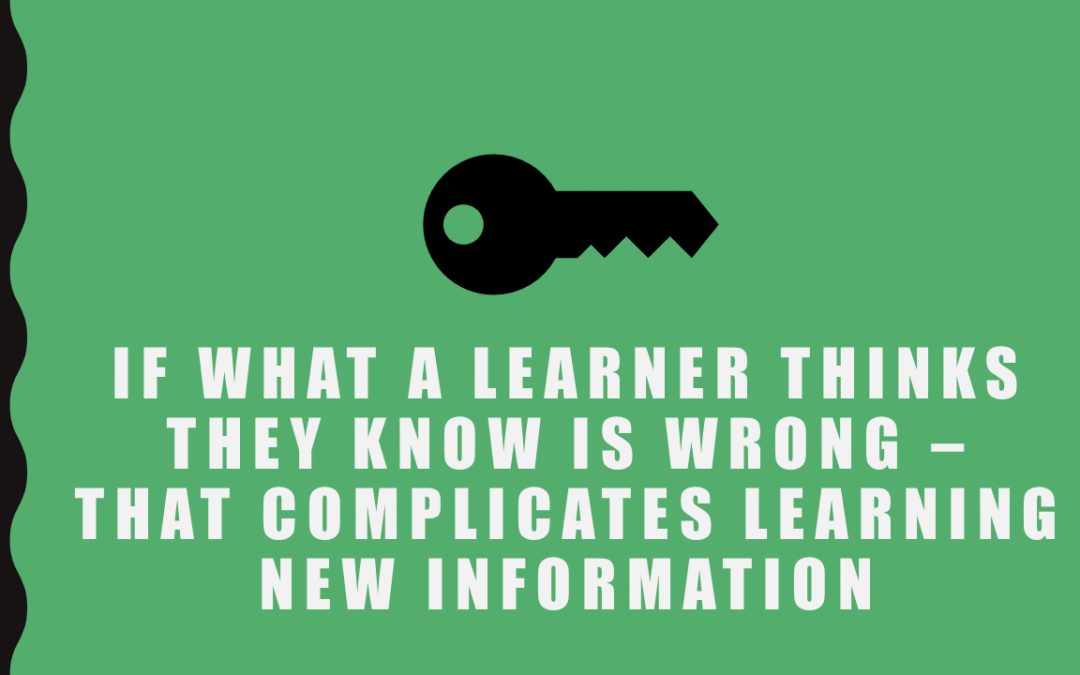
by Melody Davis | Oct 22, 2018 | Management, Medical Affairs, Training
When an MSL is planning for a KOL meeting, topics for discussion are not the only consideration. The MSL should also consider how the dialogue will develop through the give and take of conversation. By considering potential KOL responses, the MSL can be prepared with data points, articles, slides, and verbiage to drive the conversation to a successful conclusion.

by Melody Davis | Aug 9, 2018 | Instructional Design, Medical Affairs, Training
It’s Difficult to Learn New Material With Poor Background Knowledge! Providing training to a group of Medical Affairs associates (e.g., MSLs, Medical Directors, Medical Information technicians, Scientific Communication members) can be an intimidating...

by Jessica McLin | Jul 25, 2018 | Management, Medical Affairs, Operations, Training
According to the Panopto Workplace Knowledge and Productivity Report, a first-of-its kind survey of more than 1,000 U.S. workers, the average large business in the U.S. loses 47 million dollars in productivity each year as a direct result of inefficient knowledge sharing.
In this article, we review the most critical factors to consider when deciding between in-house vs. outsourced training and we’ll do our best to present the full picture. Hopefully, this analysis will give you the information you need to make some critical decisions when you have a new training project on the horizon.

by Melody Davis | Jul 12, 2018 | Management, Medical Affairs, Operations
The FDA issued new draft guidance last Friday along with a press release. Did you notice it?
No, not the one about biosimilars or off-label HEOR discussions. This guidance has the following title: ‘Indications and Usage Section of Labeling for Human Prescription Drug and biological Products – Content and Format.’ [1]
It is a mouthful, right?
The intent is to provide more concise and explicit descriptions of the conditions and populations for a specific drug indication. I had visions of infographic style labeling with clear and large icons to make scanning the document more accessible for clinicians (and the occasional patient that reads them). Nope. That is not where this is going.

by Melody Davis | Jun 27, 2018 | Management, Medical Affairs, Training
Completion of training presumes that the learner has acquired the correct information and that it’s now stored in his or her memory. And for highly competitive and skilled teams, that’s usually true. Following a training, managers often assume that the requisite knowledge has been learned and will be applied appropriately. However, there are exceptions. There are many potential underlying causes that might prevent an MSL from discussing newly learned information. In this instance, we are going to blame it on failure to use prior knowledge during a learning experience. We will explore other potential causes in separate blogs.

by Jessica McLin | Jun 15, 2018 | Management, Medical Affairs, Operations, Training
First, the good news: Learning Management Systems (LMS) are improving exponentially to keep pace with increasing demand. It’s no surprise that, in the training industry, technology use overall was up in 2017, compared to the prior year. But did you know that the most commonly used technology was – you guessed it! – learning management systems? LMS use increased from 74% in 2016 to 86% percent in 2017. That’s an increase of 12%! Now for the bad news: with improved quality and functionality come more features (which is NOT the bad news part). The bad news is that means you have to learn about and understand all those new features and the acronyms, lingo, and intimidating terminology that come with them.






